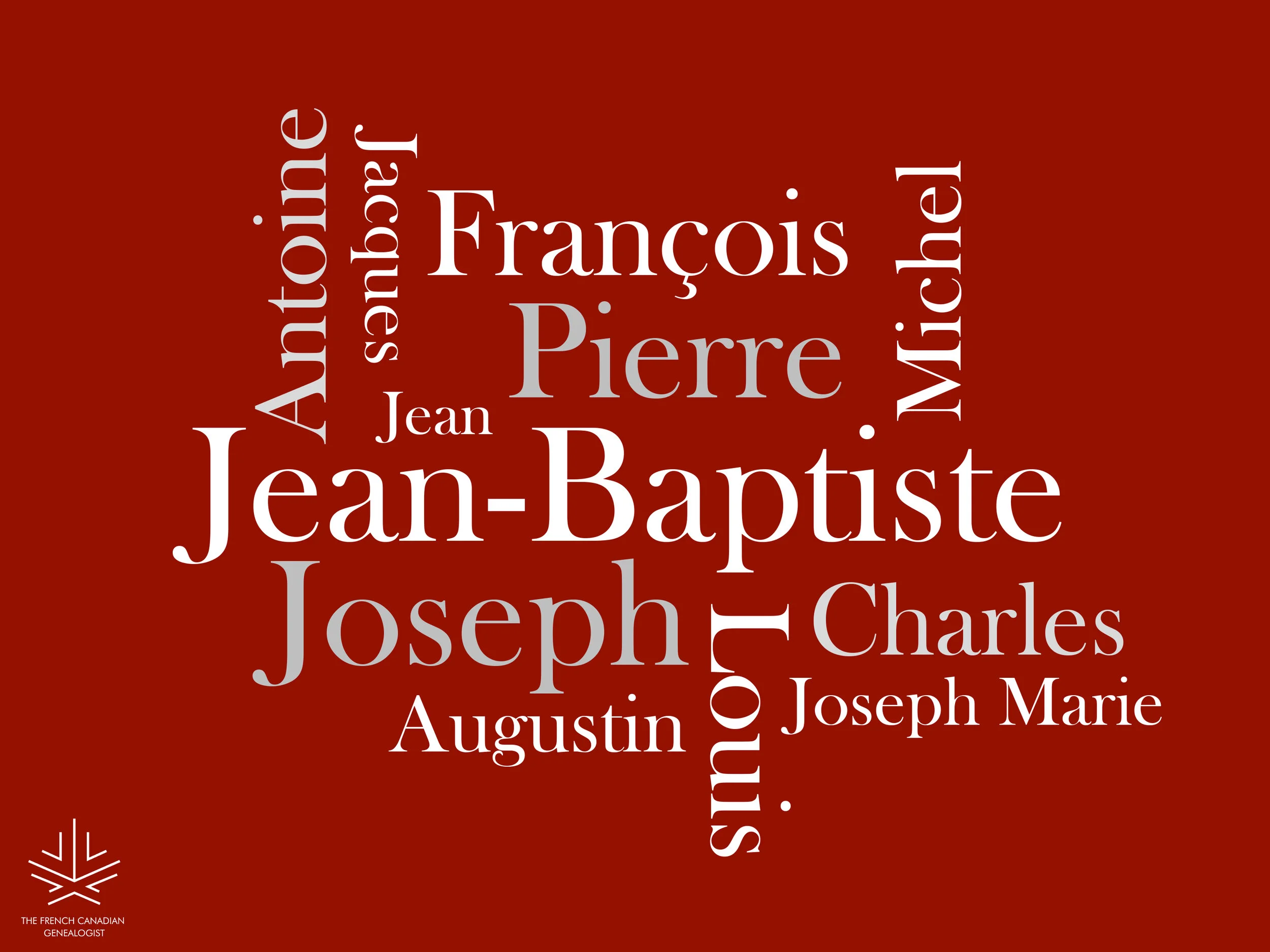Discover The Charm Of French Family Names: A Journey Through History And Heritage
French family names carry a rich history that dates back centuries, and they reflect the unique cultural identity of France. These names are more than just labels; they’re pieces of art woven into the fabric of time. Whether you're tracing your ancestry, fascinated by linguistics, or simply intrigued by the elegance of French heritage, this article will take you on a captivating journey. So, buckle up and let’s dive deep into the world of French family names!
Imagine walking through the cobblestone streets of Paris, where every corner whispers stories of the past. The names you see on plaques and monuments aren’t just random—they’re part of a tapestry that connects people to their roots. French family names often tell tales of professions, places, or even personality traits. This article will unravel the mysteries behind these names, exploring their origins, meanings, and significance.
As we delve deeper, you’ll discover how French family names have evolved over time, influenced by historical events, migrations, and cultural exchanges. By the end of this read, you’ll not only appreciate the beauty of these names but also understand their importance in shaping individual and collective identities. Ready to explore? Let’s get started!
- Gg Now Roblox Your Ultimate Guide To The Hottest Gaming Phenomenon
- Desirulez Non A Deep Dive Into The World Of Online Entertainment
What Makes French Family Names So Unique?
French family names stand out because of their distinctiveness and rich history. Unlike some cultures where names follow a rigid structure, French surnames are incredibly diverse. They can be patronymic, toponymic, occupational, or even descriptive. This diversity stems from France's varied regions, each contributing its own flair to the naming tradition.
For instance, names like Leclerc or Caron might seem simple, but they hold layers of meaning. Leclerc translates to "the clerk," pointing to a historical profession, while Caron could refer to someone living near a small boat. These names are like puzzles waiting to be solved, offering glimpses into the lives of our ancestors.
Regional Influences on French Surnames
France is a country of regions, and each region has left its mark on family names. In Brittany, you’ll find Celtic influences with names like Le Guen or Tanguy. Meanwhile, in Provence, Latin roots dominate with names such as Dubois or Fontaine. The north of France, particularly Normandy, shows Viking influence with names like Leblanc or Normand.
- Arielle Kebbel The Rising Star Who Captures Hearts On And Off Screen
- Howie Mandel Death Debunking The Rumors And Celebrating A Legend
These regional variations highlight the cultural melting pot that is France. It’s fascinating how geography and history intersect to create such a diverse naming system. As you explore further, you’ll notice that even within regions, there are subtle differences that make each name special.
Top 10 Most Common French Family Names
While French family names are diverse, some have become more common than others. Here’s a list of the top 10 most popular French surnames and what they might mean:
- Martin: Originating from the Roman name Martinus, meaning "warlike" or "of Mars."
- Bernard: A name with Germanic roots, meaning "brave as a bear."
- Dubois: Literally translates to "of the woods," likely referring to someone living near a forest.
- Thomas: Of biblical origin, meaning "twin."
- Garcia: A Basque name meaning "young" or "brave."
- Robert: Another Germanic name, meaning "bright fame."
- Richard: Meaning "powerful ruler," this name has strong Norman connections.
- Leroy: Translates to "the king," possibly indicating someone with royal connections or simply a nickname.
- Moreau: A surname derived from the word "Moor," referring to someone with dark skin or hair.
- Durand: Meaning "enduring" or "steadfast," this name reflects a sense of resilience.
These names have stood the test of time, appearing in records from medieval France to modern-day directories. Their prevalence speaks volumes about their enduring appeal and significance.
How French Family Names Evolved Over Time
The evolution of French family names is a story of adaptation and survival. In the Middle Ages, people didn’t always have fixed surnames. Instead, they were identified by their father’s name, occupation, or place of residence. Over time, as populations grew and communities expanded, the need for more permanent identifiers arose.
By the 16th century, the French monarchy mandated the use of surnames for tax and administrative purposes. This formalization helped standardize naming practices, though regional variations persisted. The Industrial Revolution further accelerated this process, as urbanization brought people together and necessitated clearer distinctions.
The Impact of Historical Events on Naming Practices
Historical events have played a significant role in shaping French family names. The Norman Conquest of England in 1066 introduced many French names to the British Isles, while the Renaissance saw a resurgence of classical influences. Wars, migrations, and revolutions also left their marks, blending different cultures and traditions.
For example, during the French Revolution, many aristocratic names were abandoned in favor of simpler, more egalitarian ones. This shift reflected the changing social landscape and the desire for equality. Today, these changes are evident in the variety of names that exist, each carrying its own piece of history.
Understanding the Meaning Behind French Family Names
Every French family name tells a story, and understanding its meaning can provide valuable insights. Some names are straightforward, like Fournier (baker) or Marchand (merchant), while others require a bit of detective work. For instance, Beaumont means "beautiful hill," suggesting a connection to a specific location.
Descriptive names, such as Blanc (white) or Noir (black), might refer to physical characteristics or clothing. Nicknames like Le Gros (the fat one) or Le Petit (the small one) were also common, often becoming permanent family names over generations. This practice highlights the personal and intimate nature of naming traditions.
Exploring the Linguistic Roots of French Surnames
The linguistic roots of French family names are as varied as the country itself. Latin, Germanic, Celtic, and even Arabic influences can be found in these names. For example, Lefebvre comes from the Latin word for "blacksmith," while Leclerc derives from "clericus," a term for a religious official.
Germanic names, brought by the Franks and other tribes, often feature elements like "hard" or "strong," reflecting the martial culture of the time. Meanwhile, Celtic names from Brittany retain their ancient charm, with prefixes like "Ap" or "Ab" indicating "son of." This linguistic diversity adds depth and complexity to the study of French surnames.
French Family Names in Modern Times
In today’s globalized world, French family names continue to evolve. Immigration, intermarriage, and cultural exchange have introduced new elements into the mix. Yet, despite these changes, the core essence of French naming traditions remains intact.
Many people today take pride in their family names, using them as a way to connect with their heritage. Genealogy has become increasingly popular, with tools like DNA testing and online archives making it easier to trace one’s roots. This renewed interest in ancestry underscores the enduring importance of family names in shaping identity.
The Role of Technology in Tracing French Family Names
Technology has revolutionized the way we research family names. Websites like Ancestry.com and MyHeritage offer vast databases of historical records, allowing users to explore their lineage with ease. Social media platforms also play a role, connecting distant relatives and sharing stories across continents.
For those interested in French family names, these resources provide a wealth of information. From birth and marriage certificates to census records and immigration papers, the digital age has opened up new avenues for discovery. Whether you’re a seasoned genealogist or a curious beginner, there’s never been a better time to dive into the world of French surnames.
Interesting Facts About French Family Names
Here are some fascinating facts about French family names that might surprise you:
- France has one of the largest surname databases in the world, with over 100,000 unique names recorded.
- Some names, like Dupont (bridge), are so common they’ve become almost generic.
- French surnames often appear in other languages, thanks to historical connections and migrations.
- Many famous figures, from artists to politicians, bear French family names, adding to their cultural significance.
- Some names have dual meanings, depending on context or region, making them even more intriguing.
These facts highlight the richness and complexity of French family names, proving that there’s always more to discover.
Conclusion: Celebrating the Legacy of French Family Names
In conclusion, French family names are more than just words—they’re windows into the past, connections to our roots, and expressions of identity. From their humble beginnings in medieval villages to their prominence in modern times, these names have played a vital role in shaping French culture and history.
As you’ve learned, understanding French family names requires a blend of linguistic, historical, and cultural knowledge. But the effort is worth it, as each name tells a unique story that resonates with us all. So, whether you’re researching your own heritage or simply fascinated by the beauty of language, take a moment to appreciate the legacy of French family names.
Now, it’s your turn! Share your thoughts, ask questions, or tell us about your favorite French surname in the comments below. And don’t forget to explore our other articles for more insights into the fascinating world of names and cultures. Merci for reading, and bonne chance on your journey of discovery!
Table of Contents
- What Makes French Family Names So Unique?
- Top 10 Most Common French Family Names
- How French Family Names Evolved Over Time
- Understanding the Meaning Behind French Family Names
- French Family Names in Modern Times
- Interesting Facts About French Family Names
- Regional Influences on French Surnames
- The Impact of Historical Events on Naming Practices
- Exploring the Linguistic Roots of French Surnames
- The Role of Technology in Tracing French Family Names
- Arielle Kebbel The Rising Star Who Captures Hearts On And Off Screen
- Download The Movies For Free Your Ultimate Guide To2151227861 Streaming And Downloading

Learn French Family Members Arapça dili, Dilbilgisi, Dil

The French Family Band Video

FrenchCanadian Names — The FrenchCanadian Genealogist